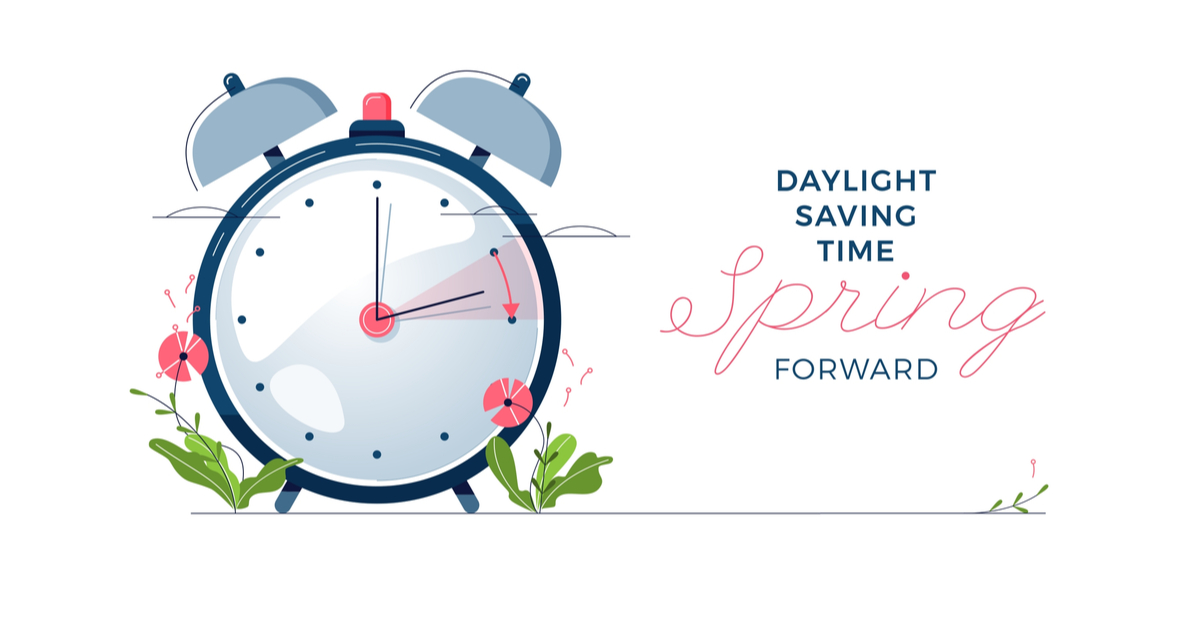“When sleep is abundant, minds flourish. When it is deficient, they don’t.” –
Daylight Savings is a false economy. It doesn’t really save anything. It’s actually a wonder that moving the clocks twice a year is still in practice given the amount of research that’s been done and its detriment to health, especially mental and emotional wellness. Spring is worse when it’s essentially imposing a sleep deficit. “March madness” rings true for many and those struggling with mental illness tend to have heightened symptoms around this time. Emergency rooms statistics also show an increase in activity around the time that the clock “spring forward” specifically related to heart attacks and car accidents. It has been shown that “sleepy” driving is more dangerous than driving under the influence of drinking or drugs. Because we lose one hour of the 24 hour day when we “spring forward”, the spring time change is really about loss of sleep.
Every year we voluntarily endure a collective jetlag. It’s rarely acknowledged and we are expected to carry on in our usual routine. However, there’s nothing usual about eating breakfast everyday at 7, then suddenly switching it to 6 am; it would be disruptive. And that’s essentially what we are doing. Even for those who are lucky enough to avoid the time change locally, everyone is still affected in some way as schedules everywhere else are shifting with the newly identified hour. I wonder if it would be better overall if it happened Saturday morning (Friday night) instead of Sunday morning (Saturday night), then we would all have an extra weekend day to adjust. It’s bad enough that electric lights and screens already induce us to be out of sync with natural cycles of light and dark, sleep researcher Matthew Walker has found that “inadequate sleep—even moderate reductions for just one week—disrupts blood sugar levels so profoundly that you would be classified as pre-diabetic.” In addition to blood sugar levels, lack of sleep is associated with immunity, memory, energy and endurance levels, hormone balance, physical coordination, and more. No wonder we don’t feel quite right in the days and sometimes weeks immediately following the time change.
The best option of course would be not to mess with the time at all. Until that happens, we can inform ourselves of best practices that have been found to manage our way through the challenging days with as little disruption as possible.
This year in 2021, Daylight Savings goes into effect starting March 14 in the U.S. and Canada, and March 28 in the UK and EU. Pay attention to your energy levels and routines at this time to have a smoother adjustment.
- If possible, don’t schedule too much in the mornings. Gently altar your waking time by 5-10 minutes each day. Start before the time change happens if you can.
- Stand near a window or outside in the daylight as soon as you wake up. Get sunlight in your eyes if possible. This helps with hormone regulation of the cortisol and melatonin schedule. I’ll explore that more in a coming post specific to circadian rhythms.
- You may not be hungry at regular mealtimes. Don’t eat if you’re not hungry. I’m going to repeat this one, don’t eat if you’re not hungry. Anything consumed to avoid hunger later will not be digested properly. It will cause gut discomfort and/or be stored as fat. Wait and enjoy the next mealtime with a hearty appetite. Occasional Intermittent Fasting, especially for the evening meal may help improve sleep and encourage waking earlier.
- Spend as much time as possible outdoors and do lots of movement and physical activity. Physical fatigue is helpful towards restorative sleep.
- Be disciplined about turning off electronics earlier than usual to shift the bedtime hour. Dim the lights in the evening or even light candles to trigger melatonin release to prepare for sleep.
- Avoid sugar and caffeine for regulating energy. While it may work in the short term, it’s actually damaging and encourages fluctuations in energy levels. Keep hydrated to maintain your energy throughout the day.
- Eat plenty of protein and healthy fats. Mental wellness in particular depends on getting sufficient healthy fats in the diet which include olive oil, coconut oil, grass fed butter, ghee, avocado, fatty fish, and seeds.
- Allow for a short nap if necessary. You will restore your energy and contrary to popular belief, it won’t interfere with your nighttime slumber as long as the nap is less than 90 minutes.







